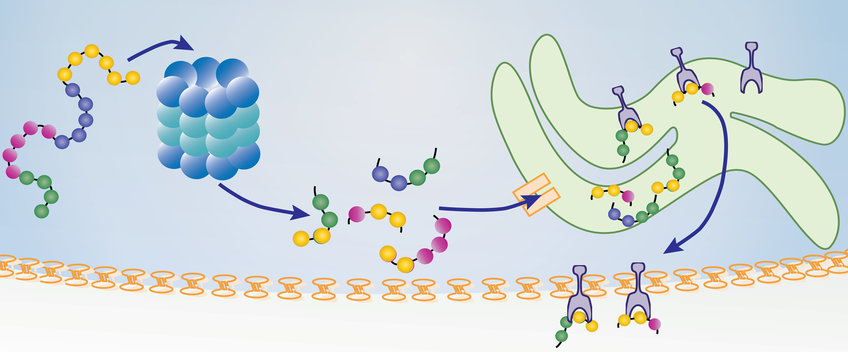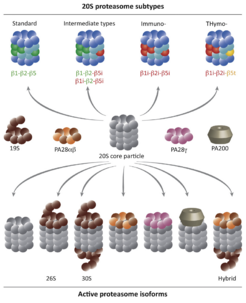
Quantitative and Systems Biology
The Research Group Quantitative and Systems Biology employs in silico approaches using in vitro and ex vivo as well as in vivo experimental data to study the pathways of the proteasome that regulate the human immune response.

Proteasome-generated spliced peptides
The proteasome is a multicomplex enzyme that catalyzes protein degradation. Apart from its function in protein metabolism, the proteasome regulates the immune system through antigen presentation, where the proteasome produces most of the epitopes presented in the MHC-class I pathway. These epitopes can be generated by simple cut, or cut-and-paste events. Latter so-called proteasome-generated spliced peptides (PSPs) represent more than one third of all epitopes bound to MHC-class I molecules.
What we do
We have developed a set of mathematical and bioinformatics tools to study the details of proteasome-catalyzed hydrolysis and peptide splicing and its importance in the MHC-class I pathway. This includes algorithms to identify PSPs from ex cellulo mass spectrometry data and methods to classify and characterize PSPs. In the future, this will result in the development of algorithms to predict PSP sequences.
Our group therefore focuses on the development and application of diverse approaches, ranging from efficient mass spectrometry search algorithms and machine learning algorithms to dynamical modelling and model calibration approaches.
Therapeutic relevance
The proteasome already is a target for therapeutic trails against cancer and infectious diseases, but its full potential still needs to be explored. This research and the in silico tools developed here will aid such translational aspects and advance the on-going research in systems immunology.




